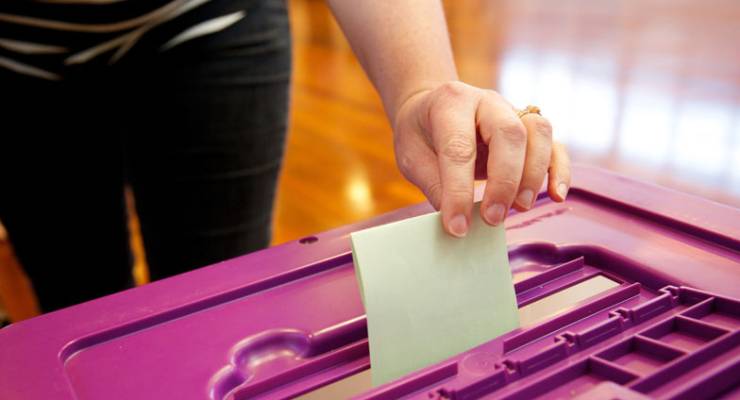
What sort of electoral system tries to forbid electors from voting for one of their own to represent them? Ours.
Much hullabaloo has followed Attorney-General George Brandis’ announcement that the election of two senators would be referred to the High Court. The cases involving senators Bob Day and Rod Culleton began in earnest on Monday. Coincidentally, a similar case in the Northern Territory is also cluttering up court time.
But there is a deeper debate we need to have. Why is our constitution cluttered with rules disqualifying some adult citizens from standing for election? These rules are an unnecessary hindrance and mess. We need a referendum to clean them out.
Here are three reasons why:
- The disqualifications are fuzzy;
- They are inflexible and inoperable; and
- They apply unfairly and are fundamentally undemocratic.
Fuzziness
The rules represent centuries-old British legal language and morality. If you hold an “office of profit under the Crown”, you are disqualified. According to the constitution, someone in the army or navy is not disqualified, but an air force reservist is. Why? The air force didn’t exist in 1901!
Does the “Crown” rule affect a local councillor? We don’t know. Ben Chifley served on the Abercrombie Shire Council while PM. Yet there is a case underway challenging the recent election of an independent Northern Territory indigenous MP who had an advisory role on a council. Does the rule apply to university employees? You can pay me to advise you, but my advice will be “maybe, maybe not”.
Inflexibility
These rules are locked into the national constitution. The High Court says they apply from the date of nomination, not the date of election. Yet the later date is when any conflict of interest might arise.
Compare state elections, where parliament can update any disqualifications simply and rationally. Many states just have a list of sensitive offices — like integrity commissioners — who forfeit their office if they choose to stand for parliament.
Disqualifications cannot be policed, because it is impossible to prove a negative. It’s easy to prove you are 18 and a citizen and so positively qualified to vote. But try to prove you are not a “subject of a foreign power”. There are 200 nations on Earth.
Even if the Australian Electoral Commission had feeds of perfect data about convictions, bankruptcies, dual citizenships, public employment and contracts, it couldn’t enforce the rules.
[Poll Bludger: are Day and Culleton victims of a silly, outdated rule?]
We have mercifully short election campaigns, which allow only a few days between nominations and early ballots being printed. What if the AEC had to rule, overnight, on whether an Australian who inherited dual citizenship from her Kiwi parents was disqualified under the “foreign power” rule? Imagine the Trumpian attacks on a “rigged” process.
Unfairness
The rules are also unfair. They fall hardest on minor parties, which cannot afford fancy legal advice on obscure provisions. Major party candidates parachuted into safe seats can at least relinquish dealings with government before standing, without risking their livelihoods. This thicket’s tendrils, however, spread wide. Questions were recently raised about Malcolm Turnbull’s election in 2010. This led to hurried corrections of government records concerning a public service contract with his wife’s company. Similar questions were raised when Liberal MP Warren Entsch’s company supplied concrete to the Commonwealth. Such issues belong in probity rules about declaring pecuniary interests and auditing the awarding of contracts and jobs, not in constitutional barriers to election.
Instead, the Senate’s composition is clouded, and to little end. Day might be unseated, but he has already resigned for other reasons. Culleton is likely to survive. Even if not, people vote for parties in the Senate, so those seats will go to a lesser-known member of the party. Worse, when a lower house MP is disqualified, there is a costly fresh election based on what electors think is a technicality.
Above all, these rules are undemocratic. In today’s environment, a candidate with a criminal history or overseas background will be scrutinised by the media and rivals. The Northern Territory case is even sillier.
Yingiya Guyula is the newly elected independent MP for Nhulunbuy. He is under challenge because he might have been a casual adviser to a small local authority, entitled at most to travel expenses to attend occasional meetings. For this alleged technical sin he could be forced back to the polls, despite the position having lapsed. The electorate would not only have been aware of this community involvement, it would have credited him for it.
Leave it up to electors to decide. If they want to elect an MP from an immigrant family or colourful background, or one who recently took business risks or saw public service, let them.
*Graeme Orr is professor of law at UQ, and author of The Law of Politics, Ritual and Rhythm in Electoral Systems and (with Ron Levy) The Law of Deliberative Democracy.







I’d go one further – review the entire mess which is our decrepit Constitution.
I agree. Why shouldn’t they be allowed the opportunity to screw us as often as the professionals?
At least they would do it in more interesting ways. And think of the impetus it would give to the tin foil akubra!
The case well posited, I’m convinced.
Although it would be productive if all candidates were screened & eliminated if fluent in weasel words.
And, define “weirdo/imperfect” – who says they’re locked out?
Take a close look at Cousin Jethro? Cory Canardly? Georges, I and II? Toady? Erica “Abortions Give You Breast Cancer” Batz? Mild Bill? Silly Sam? ….Or what’s left of the “The Incredible Shrinking Mal” ?
…. How could I have forgotten Homer Dutton?
Rubbish! I think you have confused law and justice. There is no reason anhyone should be able to do many of those things. As for the legal advice? Isn’t that what solicitors general are for?